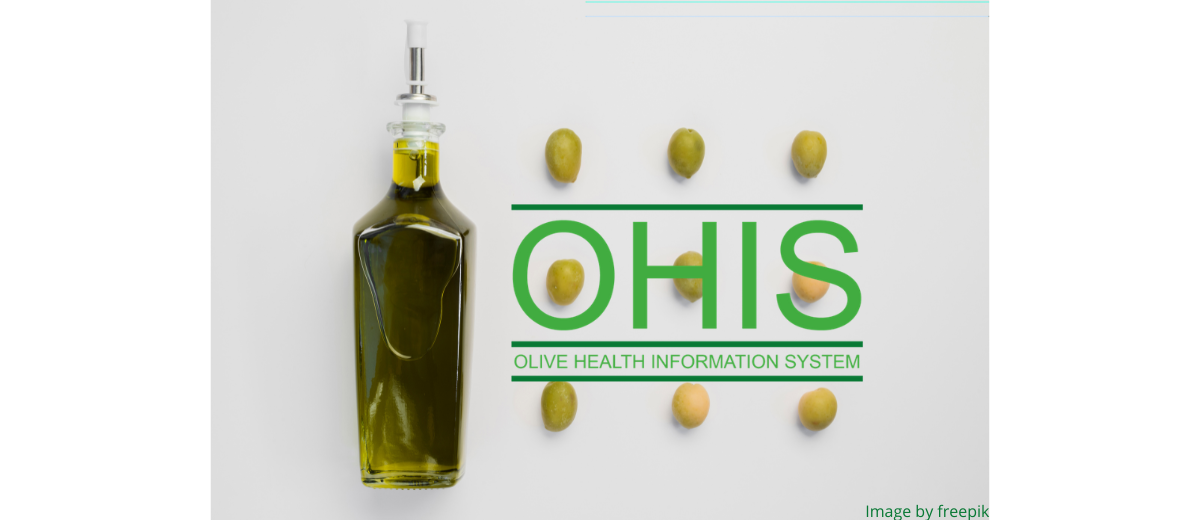This week on the Olive Health Information System website
The newsletter of the University of Navarra and the IOC dedicated to health
This week’s newsletter covers topics of significant relevance. Recent scientific studies explore the impact of diet on metabolic health, oncology, environmental sustainability, and the biological mechanisms of aging.
The European Society for the Study of Obesity (EASO) has issued a position statement emphasizing the role of medical nutrition therapy in managing overweight or obesity in individuals with cancer. The authors examine the association between obesity and cancer, highlighting that obesity contributes to metabolic alterations, such as insulin resistance and chronic inflammation, which may increase cancer risk. Among the dietary strategies evaluated, the Mediterranean diet (MedDiet) —rich in olive oil, fruits, and vegetables— stands out for its potential protective effect against cancer. The MedDiet’s positive effects are likely due to its nutrient-rich components, particularly polyphenols (found in olive oil, red wine, nuts, and seeds), fiber and omega-3 fatty acids, though the exact mechanisms remain complex and not fully understood. Other emerging interventions, such as the ketogenic diet and intermittent fasting, also show promising results, although evidence remains inconsistent. The authors call for multidisciplinary approaches involving dietitians and oncologists, as well as an individualized approach in patients with obesity and cancer.
Another important topic this week is the sustainability of the MedDiet, with its environmental impact assessed through indicators such as carbon footprint, water use, and land use. A systematic review concludes that the MedDiet is a more sustainable dietary pattern than most current Western diets, highlighting its lower environmental footprint and high nutritional quality. The review also emphasizes the need to integrate sustainability considerations into dietary guidelines, suggesting that promoting the MedDiet will benefit not only human health, but also the health of the planet. However, studies highlight a lack of consensus on how best to measure environmental impact, indicating a need for interdisciplinary dialogues to guide future food policies.
Finally, the Women’s Health Initiative cross-sectional study examines the relationship between diet quality and epigenetic aging in postmenopausal women, analyzing its association with DNA methylation-based measures. The results show an inverse association between diet quality scores, such as the Mediterranean Diet Index and the DASH Index, and markers of epigenetic aging, especially in the rate of aging (DunedinPACE). These findings suggest that better diet quality may attenuate the biological aging process, paving the way for future longitudinal research to understand how dietary interventions can modify the epigenetic trajectories of aging.
This week, the newsletter presents findings from a sub-study of the Prevention with Mediterranean Diet and Behavioral Support (PREDIMED Plus) clinical trial. Evidence suggests that cholesterol efflux capacity (CEC) is involved in intracellular lipid homeostasis and is deemed a key antiatherosclerotic. Investigators evaluated the CEC according to their intervention group and their association with changes in cardiometabolic traits after 1-year and 3-year of follow-up. Individuals in the intervention group (energy-restricted Mediterranean diet supplemented with extra-virgin olive oil + physical activity + behavioral support) showed improvements in the CEC after 1-year and 3-year follow-up (2.42% and 10.7%, respectively). Moreover, participants revealed improvements in their senescent T cell profile. These findings suggest that a weight loss intervention focused on an energy-restricted Mediterranean diet supplemented with extra-virgin olive oil, physical activity, and behavioral support has a positive impact on the aging process and cardiovascular outcomes.
Given the growing aging population and the increasing prevalence of age-related neurodegenerative conditions, lifestyle interventions that promote healthy aging are of great importance. Telomere length (TL) is a well-known hallmark of aging. Telomere shortening and damage are recognized causes of cellular senescence and aging. A sub-study from the PREDIMED-Plus trial analyzed associations between TL and cognitive function (measured by cognitive tests) over time (baseline, 3-year, and 4-year follow-up) in individuals at high risk of cardiovascular disease. Longer baseline TL was associated with improved cognitive function, including Global Cognitive Function, Executive Function domains, and Verbal Fluency, after 4 years. In this study, the authors highlight the importance of identifying individuals at risk of dementia, as early interventions may help prevent accelerated cognitive impairment. In this context, it is important to emphasize that adopting healthy dietary patterns, such as the Mediterranean diet rich in plant-based foods, fish, and olive oil as a main source of fat, could have a protective effect on TL and cognitive function.
Other articles mentioned this week in the OHIS newsletter:
OBESITY:
DIETARY PATTERNS:
Overview of anti-inflammatory diets and their promising effects on non-communicable diseases
MEDITERRANEAN DIET:
Environmental and Health Sustainability of the Mediterranean Diet: A Systematic
AGING:
Associations of mediterranean diet score and age-related macular degeneration in Korean elderly
Diet Quality and Epigenetic Aging in the Women’s Health Initiative
COGNITIVE FUNCTION:
Association of MIND diet with cognitive decline among Black and White older adults










